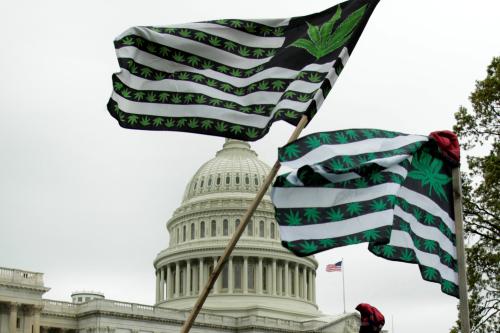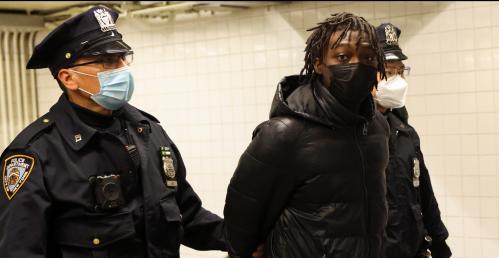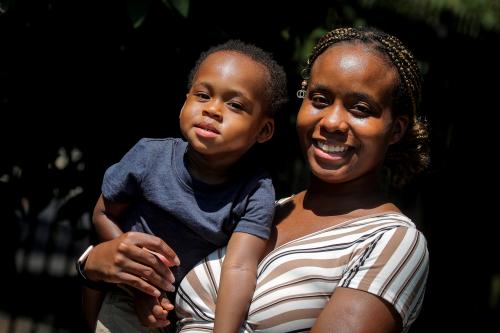As this Congressional session comes to an end, many people have been disappointed by the lack of action on important legislation. One of those is cannabis. Going forward, pro-cannabis legislators ultimately have choices to make. If comprehensive cannabis legislation is dead in this Congress—and it is—is any alternative palatable? Is the status quo of prohibition preferable to holding out hope for broad-based legislation at a later date?
As Democrats took control of the House, Senate, and White House in 2021, hopes were up. Many legalization supporters believed the time had arrived to advance this issue to the finish line. However, one year into the new Congress, reality should have finally set in: the math is still not favorable in Congress to pass comprehensive cannabis legalization and an alternative is likely necessary.
The reality that is holding Congress back from passing federal cannabis legalization is a simple one that often undermines complex, multi-faceted policy changes that have deep divisions within the legislative branch: there is not a sufficient coalition of House members and a filibuster-proof majority of senators who agree on comprehensive legalization. That result is often frustrating or bewildering for supporters of reform for two reasons. First, they look at national polling and see not just a majority, but a supermajority of Americans who support full-scale cannabis reform. Second, there are majorities of House and Senate members who would say yes to the basic question: ‘Should cannabis be legalized nationally?’
The latter, however, is the wrong question to ask. Often, in a legislative body, the issue is not whether a law should be reformed, but how that law should be reformed. And there’s the rub for federal legalization legislation. Liberals and progressives in the Democratic Party cannot agree with moderate and libertarian Republicans on what cannabis reform should look like, even if majorities agree that the law should be changed. And as pro-cannabis reform members from both sides dig their heels in on the importance of provisions that are close to their heart (and the heart of their base), it makes assembling that coalition impossible.
Here are the fault lines
Liberal Democrats and especially the party’s most progressive members are unwilling to support legislation that does not incorporate significant social equity and racial justice provisions into it. Their argument is a straightforward and convincing one: the War on Drugs was waged on the backs of Black Americans, Latinos, and indigenous populations, and reform should not proceed without a significant effort to right the wrongs of the past.
Moderate Republicans and libertarian members of the party see the issue from a market perspective. They believe government should get out of the way and let cannabis be treated as an agricultural commodity in which the business community and the free market—rather than government prohibition—should prevail. (It should be noted that most pro-cannabis Democrats and Republicans do agree on some restorative justice such as pardons and record expungement for non-violent cannabis offenders.)
However, as legislation is drafted, any bill that does not include extensive provisions to advance social equity and racial justice is a non-starter for some key Democrats as well as within those communities hit hardest by the drug war. This situation played out most recently in efforts to include the SAFE Banking Act in the National Defense Authorization Act (NDAA). That effort to include an amendment to expand access to financial institutions for the cannabis industry ultimately failed in the Senate as senators like Cory Booker (D-N.J.) and Majority Leader Chuck Schumer (D-N.Y.) preferred their own, comprehensive legislation. The stripping of SAFE Banking from the NDAA happened even as some in the cannabis advocacy community argued that SAFE Banking would help minority business owners in the industry.
When the SAFE Banking Act passed the House as a standalone bill in 2021, it garnered the votes of 106 Republicans, demonstrating that the GOP can deliver votes on cannabis legislation that makes it easier for markets and businesses to operate. However, months later, Sen. Booker announced his outright opposition to SAFE Banking if the comprehensive MORE Act or his (and Leader Schumer’s and Sen. Ron Wyden’s [D-Ore.]) Cannabis Administration and Opportunity Act did not pass.
It is here that the division over cannabis reform is most obvious. While SAFE Banking garnered the votes of more than half of the House GOP Conference, the MORE Act (which passed the House in December 2020) received only five Republican votes. Since the legislation was reintroduced in the 117th Congress it has, to date, garnered only one Republican co-sponsor.
It is clear that as a legalization bill shifts away from a pro-business direction, the number of Republican supporters plummets. And while in a Democratic-controlled House, leadership can muster the votes to pass something like the MORE Act, the requirement to beat a filibuster in the Senate makes passage of more social equity and racial justice-oriented comprehensive legislation an impossibility. It is not clear if Democrats can even keep all 50 of their Democratic members in line for such a vote, and it is a certainty that they cannot attract the 10 or more Republicans necessary to clear the 60-vote hurdle. And more moderate legislation that could attract more Republicans will likely lose the more progressive members of the Senate Democratic Caucus.
Surely some progressives (perhaps rightly) worry that moderate legislation with the vague promise to do better for communities of color at a later date is likely an empty promise—those communities have lost that hand of poker on other issues in the past. At the same time, the status quo means there will be more cannabis arrests every year that disproportionately impact communities of color. Could something that offers a bit to both sides be possible? Perhaps combining federal decriminalization, seed funding for state level record expungement, a presidential promise to pardon past offenders at the bill signing, and SAFE Banking could be seen as a step in the right direction? Would piecemeal legislation under a Democratic Congress be better than rolling the dice in a (likely) Republican Congress in 2023, knowing the hostility of Republican leadership to legalization? The latter is the central question legalization advocates must ask themselves and answer.
Ultimately, cannabis reform supporters inside and outside of Congress need a reality check about the state of play of current cannabis reform proposals, and what additional complications the future may offer. Regardless of the chosen path forward, there will be naysayers, holdouts, resistance, and anger. There will be accusations of bloated government or not doing enough to reverse the effects of the drug war. That is standard for an interest group environment on a passionate issue in a deliberative body. However, in the end, Congress has a choice between doing nothing and letting prohibition win the day and allowing all of the consequences of that to remain. Or doing something short of perfect, that addresses some of the real harms that drug prohibition has created in this country.
The Brookings Institution is committed to quality, independence, and impact.
We are supported by a diverse array of funders. In line with our values and policies, each Brookings publication represents the sole views of its author(s).








Commentary
The numbers for drug reform in Congress don’t add up
December 22, 2021